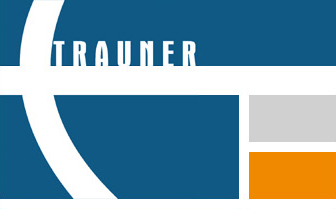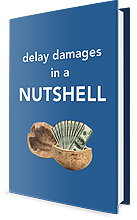Delay Damages: What are Escalation Costs?
In most fixed-price contracts, the contractor is responsible for the risk for fluctuations in its labor, equipment, and material costs between when it estimated the project costs and when it actually completed the work and incurred those costs. However, contractors can incur damages if it had to pay higher costs for its labor, equipment, or material because it performed the work later than it originally planned. This increase is called price or cost escalation.
A classic “escalation” example is when a contractor is forced to pay its tradesmen a higher hourly rate than planned because the owner delayed the performance of its work into a time period covered by a new labor agreement that required the contractor to pay a higher amount for tradesmen’s hourly wages and benefits than planned.
Typically, owners and contractors only think escalation costs can occur when work is performed after the project’s completion date. However, this is not always the case. For example, assume a contractor is constructing a multi-year project and the owner significantly delays the project’s critical path, and the project completion date, during the first year of the project. Let’s assume that, as a result of the owner’s delay in the first year, the project is delayed an entire year such that the work that was planned to occur in year 1 is delayed to year 2, the year 2 work is delayed to year 3, and so on. When this occurs, the contractor may have to pay higher costs for its labor, equipment, and materials than it originally estimated in years 2, 3, and beyond. If the contractor actually pays more for these direct costs, then it may be entitled to escalation-related damages caused by the owner’s initial year-1 delay. Note that this example illustrates the effect of critical path delay to the project. However, a contractor’s recovery of escalation-related damages may not always be limited to the existence of just critical project delay.
For example, a contractor’s recovery of its escalation costs is not always limited to existence of an excusable, compensable delay in same way that a contractor’s extended field office and unabsorbed home office overhead delay damages are. Escalation-related damages can be caused by both critical and non-critical delays. Similarly, escalation damages can also result from owner-caused inefficiency, disruptions, and suspensions that do not result in critical project delays, but instead only delay non-critical work operations.
Most importantly, a contractor must be able to show that it was forced to pay unanticipated increased labor, equipment, and material costs due delays caused by the owner or, in the case of a subcontractor, from delays caused by the owner or general contractor.
When considering whether to make a request for its escalation costs, the first place the contractor should go to seek guidance is its construction contract. It’s essential to understand how and to what extent your construction contract addresses the recovery of escalation costs. Note that most owner-contractor construction contracts do not specifically limit the contractor’s recovery of its escalation costs. Whereas, many general contractor-subcontractor contracts do address escalation. If your construction contract does address it, then understanding how your recovery of escalation costs may be limited is essential.
Asphalt and Fuel Price Escalation Provisions
In attempts to lower the project’s overall price and eliminate the need for contractors to include contingency amounts for risky items, some owners have elected to include price escalation provisions in their contracts, such as fuel and asphalt adjustment provisions.
By including these price adjustment provisions in their contracts, owners have effectively taken the risk of the material’s cost volatility away from the contractor. Contractors should be aware of these contract provisions, how they affect their entitlement to recover damages for material cost escalation, and how those costs should be calculated.
For more on this or any other topic, please call me at 215-814-6400 or email me at mark.nagata@traunerconsulting.com.

